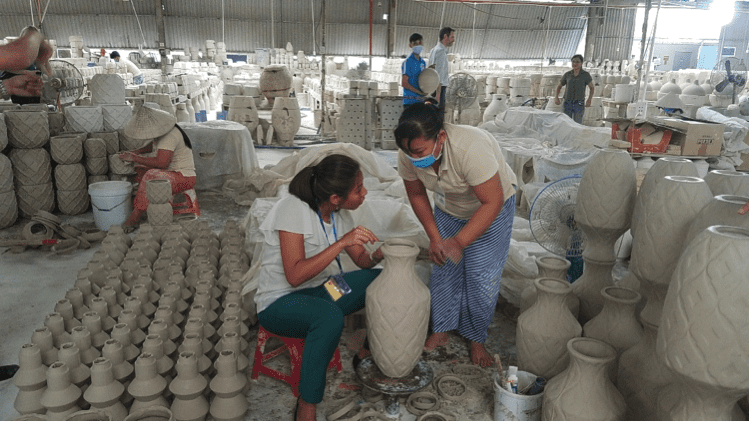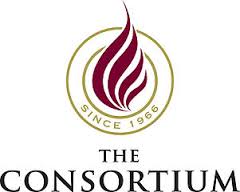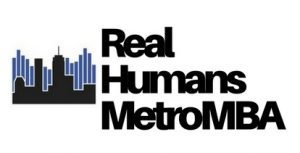What They’re Saying: Zuckerberg Testifies Amid Facebook Scandal

Earlier this week, ultra-rich and seemingly malnourished social media monolith Mark Zuckerberg testified before a continually befuddled U.S. Congress about the Facebook scandal regarding the private information of its unwary users.
However, despite getting turned into a plethora of memes during his time in Washington DC, it’s patently unclear what, if anything, will come as a result of the testimony, in which Zuckerberg said that data was even coming from users who didn’t actually have their own Facebook accounts.
Zuckerberg’s appearance before Congress came within the short window of time in which Cambridge Analytica—the other company embroiled in ongoing Facebook scandal—watched as its CEO Alexander Nix stepped down from his role. Check out how business schools are reacting to the recent news below.
In the first of two Congressional hearings this week, @finkd made no promises to support new legislation or to change how @Facebook does business, despite recent data breaches and controversy. https://t.co/72Xuv4DUge @ReutersBiz.
— MIT Sloan Experts (@mitsloanexperts) April 12, 2018
When I opened my file, it was like opening Pandora’s box. (Via @nytimes) https://t.co/VQl9Diu3pM
— MIT Tech Review (@techreview) April 12, 2018
Marketing and Strategy Professor Tim Derdenger talks with @Marketplace @Erika_Beras about the fallout from Facebook’s mishandling of user data and impact on other advertising revenue business models, like Google #TepperFaculty https://t.co/C30HJNX69T pic.twitter.com/74lOiPxOWH
— Tepper CMU (@teppercmu) April 11, 2018
.@profgalloway discusses the controversy surrounding #Facebook via @bsurveillance. Listen here: https://t.co/Yy9i9NQNKv
— NYU Stern (@NYUStern) April 11, 2018
Why was protecting data not a top priority at Facebook before the Cambridge Analytica scandal blew up? “This probably reflects on managerial experience” suggests @Wharton’s David Hsu https://t.co/vBXafqKdGW
— Knowledge@Wharton (@whartonknows) April 7, 2018
Inside the NYU EMBA Global Study Tour to Vietnam

Global study trips are one of the most valuable opportunities available to MBAs. It can provide students with the chance to experience different business practices, learn from companies across the world, and better understand the global marketplace. It’s a beneficial learning environment for students in any industry and job function.
At the NYU Stern School of Business, the most recent Global Study Tour took a group of Executive MBA students to Ho Chi Minh City, Vietnam. During the trip, students met with representatives from a wide range of companies including Vina Capital, Grab, AstraZeneca, Siemens, Esquel Group, and more. Don’t worry; they also had plenty of time to sightseeing and eat the local food.
To learn more about this most recent Global Study Tour to Vietnam, we spoke with Anjou Martinez, an ’18 EMBA student, who was on the trip.
MetroMBA: What was the highlight of the trip for you?

Vincom Center
Anjou Martinez: The best part of the trip for me was the Local Market Immersion, where each group was assigned a tour guide/interpreter and was given an itinerary to visit a variety of local places to observe the daily life in Ho Chi Minh. My group was tasked to visit Vincom Center, a high-end shopping mall equipped with residential and office space. At lunch, we sampled traditional Vietnamese cuisines such as Bun Bo Hue, a traditional Hue-style beef noodle soup, Xu Chicken Rice, a crispy chicken dish with ginger chili soy sauce and aromatic rice, and Sautéed Vermicelli Noodles with vegetables.

Ben Thanh Market
After lunch, we walked to the famous Ben Thanh Market, an indoor marketplace that sells local handicrafts, branded goods, and souvenirs at inexpensive prices. In this setting, prices are not fixed, so you have to haggle to find a bargain. We also visited Phuong Ha, a specialty grocery store for expats and more affluent locals. Most of the goods were manufactured from the U.S., Europe, and Australia.
On our way to our last stop, which was Maybank, we added a side trip to the Bitexco Financial Tower, which is the tallest skyscraper in Saigon. We ended our immersion at the bank, which was closed by the time we arrived—it closed at 3 p.m., which we thought was early compared to U.S. standards.
Metro: What company visit had the greatest impact on you and why?
AM: My favorite company visit was at Doan Potters, a private company in Binh Duong province which exports its pottery and home décor products to big companies such as Wal-Mart, Home Depot, Lowe’s, Crate & Barrel, and Pier 1 Imports. The management was very accommodating. They broke us into groups and assigned us an expert to tour their facilities and better understand their business from converting the raw materials into clay, designing, slip-casting, jiggering, hand-turning, glazing, carving, and firing. This experience showed me how small businesses in Vietnam can thrive, make an impact in their community, and profit globally.

Doan Potters
Metro: Can you share one of your funniest situations or experiences in Vietnam?
AM: The most unique experience I had in Vietnam was after class, when several of us rode on the back of a scooter driven by our personal driver/guide to explore the bustling streets of Saigon while making food stops at local eateries. It was exhilarating to go with the traffic flow with no clear driving lanes and directions. We ate like the locals on low tables and low stools in a crouch position. We were on the streets with Back of the Bike Tours for most of the evening, and we ventured from District 1 to District 3 and 10. I thought it was the best way to live like a local for one night. My driver Phuong was very helpful in answering questions about her country and what it was like for her—as a recent a college graduate—to live in Saigon.
Metro: What surprised you the most about your trip?
AM: Coming into Vietnam, I thought they were a strict Communist country like China. However, I was surprised to find out that the government has done a lot of things to improve capitalism by encouraging privatization. Small- and mid-size businesses are indeed thriving in Saigon.
Metro: Why did you decide to go on the Global Study Tour to Vietnam?
AM: As part of the NYU Executive MBA program, we had an option to go to a global study tour (GST) in Vietnam or Greece. I thought a GST in Vietnam is more of an educational experience for me since I had lived in Southeast Asia when I was younger. I think Vietnam has its own charm and interesting history—so much so that I was inclined to travel more than 20 hours one-way to experience what it had to offer.
Metro: How did the trip enhance or change your view of international business?
AM: Seeing is believing. Aside from Doan Potters, we also visited Esquel Group, a global textile and apparel manufacturing company that boasts clients such as Nike, Ralph Lauren, and Tommy Hilfiger. We witnessed how shirts and pants were made from scratch from cutting, sewing, embroidery, silkscreen, laundering, and packaging. Now, when I go for a run and put on Nike apparel, I think of Esquel’s manufacturing facility and how the world is a smaller place. The East has really met the West. International business can flourish by establishing global partnerships that create win-win situations for both companies.
Metro: Why would you recommend that an MBA student travel abroad during their program?
AM: My global study tour was an eye-opening, educational experience that cannot be matched by lectures, course readings, or videos. Students must immerse themselves in the culture, language, customs and thus, business opportunities. The academic structure of the global study tour optimized the learning.
March Madness Begins: Consortium MBA Draft Takes Place Today

Clear Admit recently highlighted this year’s Consortium for Graduate Study in Management MBA Draft, which is offering huge scholarship payouts for a lucky few. Check it out below.
No, it has nothing to do with basketball. A draft of another sort will take place today, but for some MBA applicants it could be as big as getting by the Golden State Warriors. We’re talking about the annual draft for the Consortium for Graduate Study in Management. Each year, the group’s member business schools offer tens of millions of dollars in fellowships to hundreds of MBA applicants, most under-represented minorities.
Held annually in mid-March, the draft is a complex matching up of leading business schools and applicants based on the order of preference expressed by each. Consortium member schools include the University of Michigan’s Ross School, UVA’s Darden School, UC Berkeley’s Haas School, Dartmouth’s Tuck School, and NYU Stern, to name just a few. When applicants apply as part of the Consortium Fellowship process, they benefit from being able to apply to six of the 19 members schools using a single application (with volume discounts for multiple schools). But then comes the tough—and critical—part.
The Importance of Ranking Your Consortium Schools Carefully
You have to rank your selected schools in order of your desire to attend, which will determine the order in which you’ll be considered for the Consortium Fellowship, a merit-based, full-tuition award. (There is the pesky little detail about needing to gain admission to a school or schools on your list.) Provided you are admitted to some or all of the schools on your list, your ranking then comes into play. If your first-ranked school declines to award you funding through the Consortium, the opportunity will be passed on to the next school on your list, and so on. According to a Consortium employee, the order in which applicants have ranked their choices is not revealed explicitly to the schools. Instead, each school is just not given an opportunity to offer you the fellowship until theirs is the top remaining school on your list.
Of course, another important part of the Consortium application is demonstrating a proven commitment to increasing the ranks of African Americans, Hispanic Americans, and Native Americans in business education and corporate leadership. The Consortium was founded in 1966 by Washington University professor Sterling Schoen around the mission of equipping more African American men with the requisite business skills to succeed in corporate America. Three schools and 21 men took part in the first year. Additional schools began to join as members, and in 1970 applicant membership was widened to women, Hispanic Americans, and Native Americans. In 2004, in compliance with a Supreme Court ruling a year earlier, membership was opened to all U.S. citizens and permanent residents who demonstrate a track record of supporting the Consortium vision.
Today’s Consortium MBA Draft Day
Fast forward to today, draft day. Representatives from the member schools are gathering with Consortium staff to begin the complicated matchmaking process, which at least in recent years has taken place in a St. Louis hotel room near the Consortium’s Chesterfield, MO, headquarters. Unless things have changed dramatically with recent additions to the number of member schools—the group has grown from 17 in 2011 to 19 this past July—the process includes six rounds and takes about four hours to complete.
Schools come in with their draft picks in hand, and the school designated as first choice by the most applicants gets to choose as many of those students as it wants to offer the fellowship. And so it continues, passing on to each successive school to select from its first-round applicants. If a school passes on an applicant at any time in the process, another school can then select that applicant in a later round.
From the applicant’s point of view, here’s what it looks like: Let’s say that Yale SOM is your first-ranked school and you are admitted into its MBA program. In today’s draft, Yale SOM will have first dibs on offering you the Consortium Fellowship. If Yale SOM does offer you the fellowship, everyone’s happy and you can choose to attend with the benefit of the fellowship. You may still be admitted to other programs on your list, but these programs cannot offer you the Consortium Fellowship.

But say you were admitted to Yale SOM but it doesn’t offer you the fellowship—or you don’t get into Yale—then the opportunity to offer you the fellowship is made available to your second-ranked school, and on down the line.
While only one school can offer you the Consortium Fellowship, that does not preclude the other schools on your list from offering you other school-specific scholarship funding. Once awarded by one school, the Consortium Fellowship is not transferable to another.
Regardless of whether you ultimately accept the fellowship and attend the school that offers it, you retain your Consortium membership status, granted as part of the application process. As long as you attend a school within the Consortium, you’ll get take advantage of a wide range of membership benefits, including valuable recruitment and networking events, webinars, and chats.
Why Would Anyone Turn Down a Consortium Fellowship?
Consortium member schools will typically select more students than they have fellowships for to account for the fact that some fellowship recipients will ultimately turn down their offers. What would make a fellowship applicant turn down a free ride to a top-ranked business school, you ask? Sometimes it’s admission to an even higher-ranked business school not part of the Consortium (Harvard, Stanford, Wharton, Columbia, Kellogg, MIT Sloan, and Chicago Booth don’t play the Consortium game). This becomes an easier decision if these other schools offer their own attractive financial aid enticements, which they often do. So in the coming Decision Week(s), keep in mind that schools that have picked you now get to anxiously await word of whether you pick them. It’s nice when the tables get turned, right?
The official Consortium Fellowship notification deadline is March 23rd, but we’d guess many schools will be eager to share the news of the fellowship award in tandem with the news of acceptance. It should be fun to watch on MBA LiveWire! Those of us here at Clear Admit are wishing luck to the applicants and schools involved in today’s Consortium MBA Draft and hope some terrific matches are made, resulting in hundreds of successful MBA careers and further expansion of the Consortium mission’s reach.
To those on MBA Livewire who have speculated about why some Consortium applicants learned of decisions from certain schools before stated decision deadlines, that’s also related to today’s draft. Consortium member schools will have needed to make admissions decisions for their potential drafts picks by today, regardless of the school’s own decision deadline. Some schools may choose to communicate those decisions to applicants early since they already will have been reached.
Learn more about the Consortium application process here. Applications for the Class of 2021 open in August 2018 are due in two rounds, the first in October 2018, and the second in January 2019.
How Quickly Can You Earn an MBA in New York City?

The time of the two-year MBA is coming to an end. Now, many top schools offer accelerated MBA programs that can be completed in as little as 12 months—with one school offering a nine-month MBA program designed just for business school graduates. So where you can find the fastest MBA degrees in NYC?
For most of these one-year NYC business school programs, the MBA curriculum and experience is similar to that of the traditional two-year MBA but condensed into a more intense 12-month format. These are the ideal programs for business professionals who do not have the time to take off two years of work but want the full MBA experience. Continue reading…
Real Humans of the NYU Stern MBA Class of 2019

Clear Admit recently profiled many of the standout students from the NYU Stern MBA Class of 2019, which you can read below.
New York University’s Stern School of Business got the party started this summer as the first leading business school to share a profile for its incoming Class of 2019. That profile, published in late July, revealed a 4 percent uptick in application volume over the prior year. At the same time, the school admitted significantly fewer students—822 this year as compared to 871 last year—which means that those who got in did so against greater odds.

This increased selectivity may have contributed to the rising GMAT scores among those who got the nod. Both average and median GMAT scores increased year over year. The average GMAT score jumped six points, from 710 to 714. The median score increased even more significantly, from 710 to 720. Average GPA, though, slipped slightly, from 3.51 to 3.48.
As the school’s admissions process grew more selective, the enrolled class grew more diverse. The incoming class is 38 percent female, up from 35 percent the prior year. International students also increased to represent 37 percent of the Class of 2019, up from 35 percent in the Class of 2018.
In terms of the work experience they bring with them, more members of the Class of 2019 come from the financial services industry (29 percent) than any other. Another 12 percent of the class came from consulting. Students with government/non-profit, tech, and military backgrounds followed, at 7 percent each.
While some of these statistics hint at both the diversity and the high caliber of the incoming class, nothing brings that to life more than a look at some of the real students who enrolled. We spoke with five of them—drawn from Massachusetts, Texas, Michigan, India, and Lebanon respectively—to learn more about why they chose Stern, how they hope the Stern MBA will help them transform their careers, what advice they would offer to applicants navigating the admissions process right now, and more.
Perhaps not surprising, NYU Stern’s New York City location factored highly into the decision-making process for many of the students we asked. But so too did its community—including how approachable and friendly current students were to prospective students and the school-wide emphasis on IQ + EQ (emotional quotient)—and its curriculum, which has a strong core but also gives students the opportunity to explore electives early on and offers specializations in things like luxury marketing and technology. The reach of its alumni base was also a factor cited by several of the students we spoke with.
Read on to learn more about some standout members of the NYU Stern MBA Class of 2019.
The 5 Important Things You’ll Need to Know When Getting an MBA

If you’ve gone through the rigamarole of an MBA application, chances are you’re feeling a bit taxed (no pun intended). Don’t slow down now! Sometimes when you have your life and education under the microscope it’s helpful to get a gentle reminder from a reliable source—like us—of what you hoped to get out of the degree in the first place. Here are a few tips that might help calibrate your b-school compass:
Practice On The Field
Cliff Oxford, founder of the Oxford Center for Entrepreneurs, wrote in the New York Times that certain traditional MBA programs are “like having athletes studying game film but never practicing on the field.” This is why many schools encourage students to apply for internships during enrollment or summer semesters. These opportunities can be competitive—especially if you have your mind set on a large company—but don’t let that deter you.
There are many ways to stay connected with the global marketplace, where you will be employed in only two years. For starters, keep applying and remain alert to positions that may have a greater potential for longevity. Interviews that don’t lead to an internship are still essential experiences. If your chosen program doesn’t have adequate outlets for students to engage with employers, ask for them.
Let A Mentor Set The Pace
Mentorships reinforce the idea that there’s no substitute for experience. For students too intimidated to reach out to a professor, consider that mentorships may be the most rewarding part of their job.
Many schools offer a mentorship program built into the curriculum. Large schools like the University of Oregon and the University of Miami pair students with local professionals to “meet regularly throughout the academic year to discuss everything from study habits to career choices.” Schools have reported that these connections are pivotal for students in achieving their ideal positions and cultivating life-long relationships in the field.
Mentorship is also a staple of the career path designed for students at powerhouse business schools like the Yale School of Management, which recently revamped its WE@Yale program.
Change Your Perspective
When under pressure, remember to give yourself a break. Exercise and meditation are steadfast options, but use your imagination. Jerry Seinfeld reportedly displayed images from the Hubble Space Telescope on the walls of his writing room to calm his nerves. ”I don’t find being insignificant depressing. I find it uplifting.”
Completing your MBA is a personal exploration above all else. Don’t forget your true entrepreneurial spirit while finding your footing. After all, changing ones career is the second most common reason, according to students, that they pursue an MBA in a first place.
Experiment With Electives
Special projects and electives are a chance to step out of your comfort zone. These courses are updated on a yearly basis, meaning that they cover cutting-edge topics that can open up new worlds and help you garner skills that separate you from the rest.
For example, the Stern Signature Project at the NYU Stern Center for Business and Human Rights recently led students to create a business plan “focused on sustainable employment and profit” for a private Kenyan social enterprise.

The NYU Stern Center for Business and Human Rights launched in 2013, focusing on various issues like manufacturing, sustainability, and much more.
Get To Know Your Pack
A drive to succeed doesn’t mean that you have to be the lone wolf on Wall Street. Every MBA program has students who come from unique backgrounds, cultures, and histories. These are your future colleagues. They’re also hidden mentors who may be your most valuable supporters.
Many schools, like the Wharton School at the University of Pennsylvania, actively acclimate their students together with unique Olympic-like events, helping bridge the various cultural gaps of the incoming students. Not only are these events fun, unless you hate being outside or sack races, but they are potentially powerful networking events for you and your peers.
